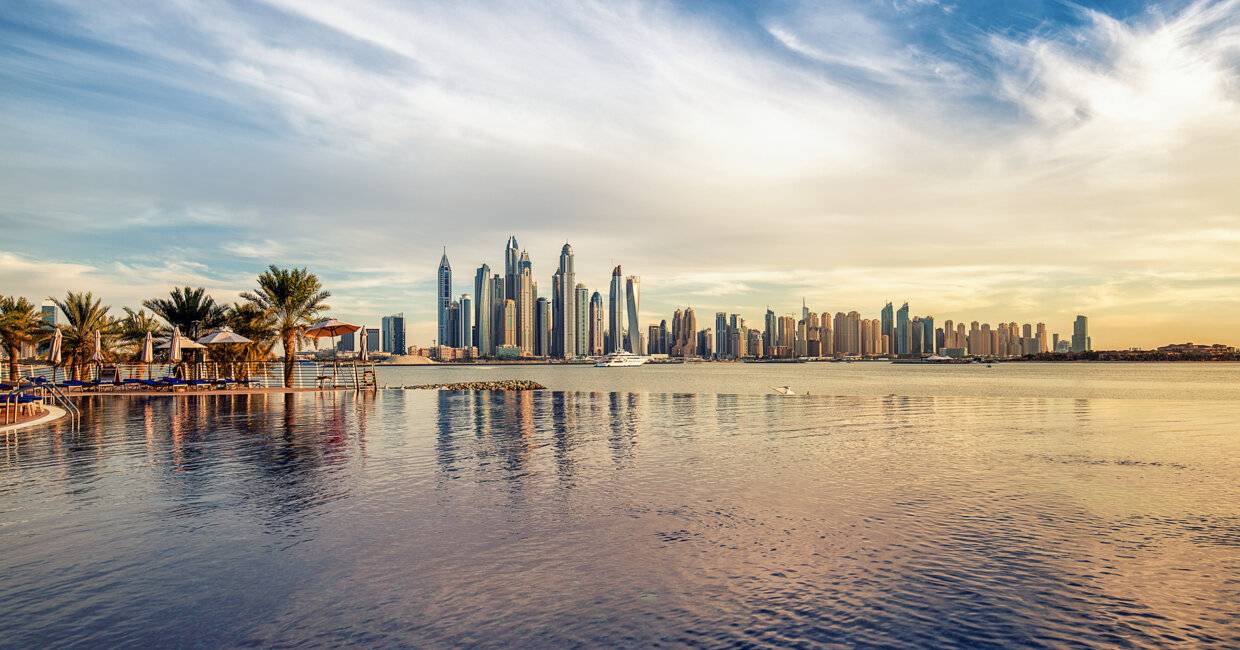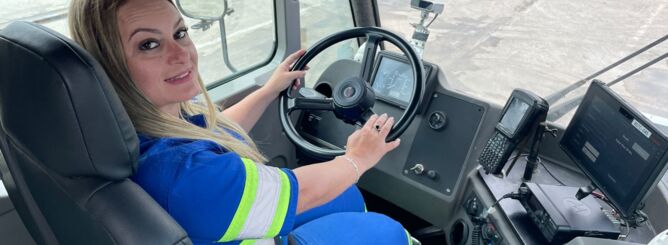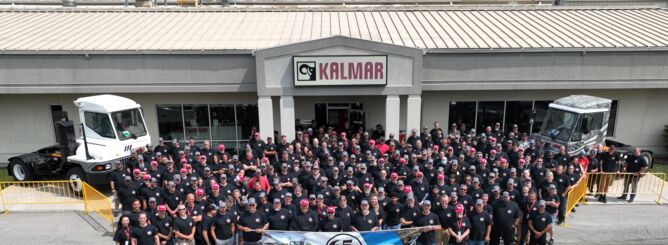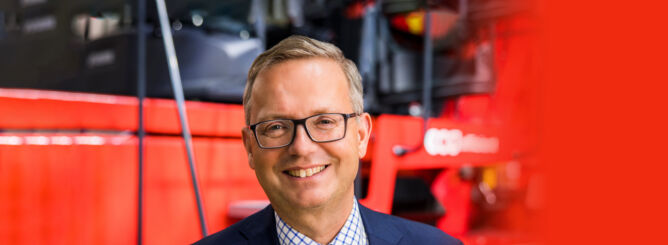Empowering logistics: Finding the right answer
Customers in the Middle East looking for solutions that address all their cargo handling requirements are in safe hands with Sameer Kauchali.
Sameer Kauchali has been Kalmar’s solution sales manager for the Middle East for the last five years. During that time he has come to appreciate the importance of continuous learning and improvement.
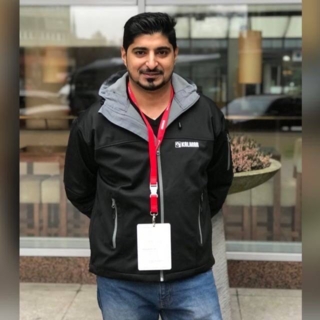 “The challenge of fulfilling customer requirements is hugely motivating,” he says. “Thinking like a solution provider rather than just a manufacturer selling a product requires us to understand the customer’s needs and encourages innovation. Of course, once a customer is satisfied they expect the same level of service each and every time, so their expectations rise.”
“The challenge of fulfilling customer requirements is hugely motivating,” he says. “Thinking like a solution provider rather than just a manufacturer selling a product requires us to understand the customer’s needs and encourages innovation. Of course, once a customer is satisfied they expect the same level of service each and every time, so their expectations rise.”
Commitment to the customer
Kauchali thinks the most important factors in building successful customer relationships are commitment to the customer, confidence in the solution, reliability of the service and trust between the two parties – qualities that have all been tested over the last 12 months as the world has grappled with the Covid-19 outbreak.
“The challenge of fulfilling customer requirements is hugely motivating.”
“The way we work and the interactions we have with customers have changed significantly,” he observes. “Before the pandemic, companies in the Middle East were comfortable meeting with manufacturers to discuss their requirements and find solutions to their operational challenges. In the early months it was difficult to bring all the relevant departments -- technical, procurement, finance, local dealers -- together to discuss the issues.”
However, as the parties began to understand the new ways of communicating, it has become much easier to interact with customers and dealers.
Truly a team effort
According to Kauchali, the most significant challenges faced by Kalmar in the Middle East often arise after the machine has been delivered to the customer.
“To give you an example of a situation where we went out of our way to help a customer in a difficult situation, we had a deal to supply a reachstacker and empty container handler to one of our key customers in the region. Shortly after the machines were delivered the customer told us they were having a number of issues with the machines.”
After investigating the situation and several meetings with Kalmar, the customer suggested a major change to the machine, a change that required approval from Kalmar, as well as from the engine manufacturer’s R&D department in order to reset the machine. With the help of their colleagues in product development, the local sales team was able to change a number of the machine’s parameters.
“The future of logistics is focused on improving technology in areas such as automation, which will improve overall performance in the industry and increase customer satisfaction.”
“These changes have really helped the customer in its day-to-day operations,” adds Kauchali. “This is a great example of how we provide solutions to customer problems.”
Globalisation demands that users of cargo handling equipment in the Middle East invest in digitisation, reduce downtime and streamline their operations while also reducing their environmental impact.
“The future of logistics is focused on improving technology in areas such as automation, which will improve overall performance in the industry and increase customer satisfaction,” explains Kauchali. “As a pioneer in this area, Kalmar can offer a range of solutions to port, terminal, distribution, transportation, logistics and heavy industry operators in collaboration with local dealers that is unmatched by any other manufacturer.”
